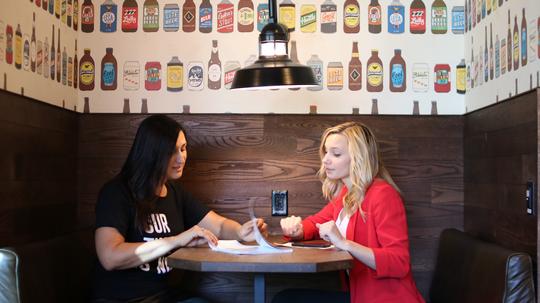
Coworking has become increasingly more prevalent for companies of all sizes. But how do you know if it is the right financial move for your business? While the option doesn’t come without its own list of cons, coworking does provide growing companies with flexibility that was traditionally nonexistent.
When Cresa partners with businesses to determine if coworking is the right fit, we look at all contributing factors. Here are a few for your business to consider.
Growth Trajectory
In a traditional five to seven-year lease, rapid growth typically means paying for unused square footage for a fraction of time. Depending on the company size, coworking allows for various term options from month-to-month, one-year or even 30-90 days with the ability to add or subtract square footage as companies grow or contract operations.
In many cases coworking also provides occupiers with the option to test out new markets prior to making the decision to invest in opening a permanent location.
Con: While building a brand, culture becomes a critical factor in retention and recruitment. It can be easy to lose the competitive advantage of company culture while operating inside the shared-environment of coworking.
Risk Tolerance
The recent decline in federal interest rates has signaled an increase in perceived risk. Coworking allows companies to take that risk off their balance sheet by giving it to a third party. They now have the option to exit quickly if needed.
Con: WeWork’s S-1 filing revealed the company’s financial trouble. As their business model stands, it takes two years to turn a profit in a new location. Having opened 100 new locations in 2019 alone, this is a risk to the model and explains why their growth has been so rapid. The company as a whole might not withstand a change in the real estate market or the economy.
Cost
With a healthy equivalent of Class A to C office space, rent in downtown Denver averages about $36.00 per square foot, with new construction/rehab projects seeking low-mid $40’s per square foot. What that does not account for is design, construction, furniture, IT and moving expenses, among several other expenses. While coworking may not be the cheapest option – averaging $500-$600 per desk (or $75-$90 per square foot) – it does significantly alleviate many of the up-front expenses.
Con: Coworking is a higher cost compared to traditional leases. What is lost monetarily is gained in flexibility.
Cash Flow
Following the new financial accounting standards that took effect in 2019, leases longer than one year must be reported as both assets and liabilities on the balance sheet. This categorizes a lease as a debt rather than as an expense and means your ability to fund new growth could be impacted.
The short-term leases made available by coworking spaces help companies avoid this new practice and allow themselves more flexibility to borrow.
When it comes to your workspace, fully understanding your options can be the difference between setting your company up for long-term success and letting the overhead slow your growth trajectory. So let’s talk! Email me at bdrelick@cresa.com to schedule a free consulation





